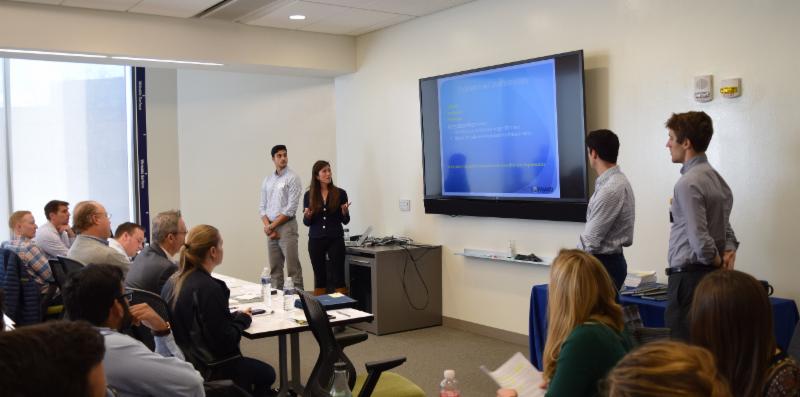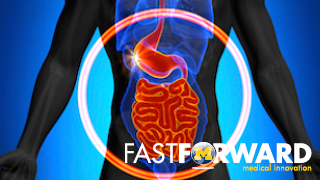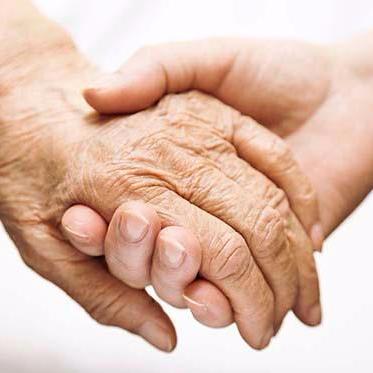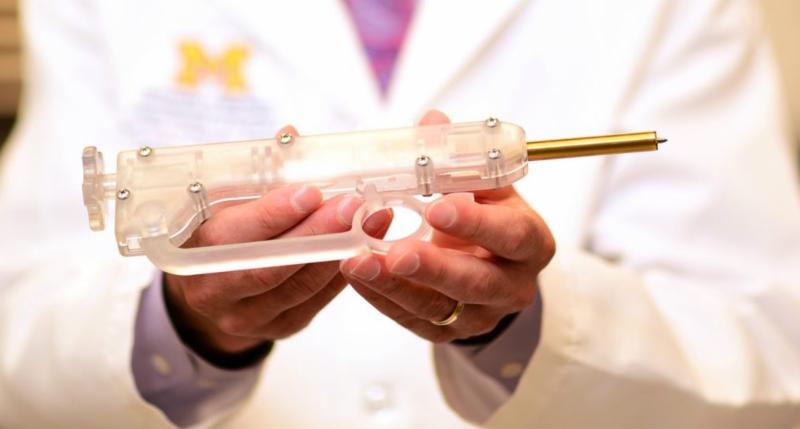|
A UNIT OF THE U-M MEDICAL SCHOOL OFFICE OF RESEARCH
|
New this month

|
 |
 |
EVENT  |
|
DATE  |
WHO SHOULD ATTEND  |
A Value Proposition Case Study

|
 |
Monday,
November 21, 2016
12:00pm-1:00pm
Taubman Health Sciences Library, Rm. 6000
LUNCH INCLUDED
|
Researchers will hear David Olson, Ph.D., present a case study in medical technology commercialization, from academic invention to start-up, IPO, pharmaceutical partnering, and product launch. The program will offer an in-depth look at the rationale for building the product and how that fits with the market need. This case study will provide insight into how life science commercialization works and best practices for success. CLICK HERE to register.
|
Using Captured Data

|
|
Wednesday,
December 7, 2016
5:00pm-7:00pm
Ann Arbor SPARK
Lower Level
330 East Liberty
Ann Arbor
|
Faculty and researchers interested in learning more about captured data to increase value for their companies or institutions can attend this panel discussion to gain insights on what new opportunities there are in this emerging and exciting area. The panel includes Deborah Harkins, Senior Analytics Manager for GE Healthcare Partners; Erin O'Brien Kaleba, Director for the Research Data Warehouse (RDW)/Data Direct and the Data Office for Clinical and Translational Research at the University of Michigan Medical School; and Lukasz Paszek, Senior Vice-President, Corporate Strategy and Business Development at ArborMetrix, Inc. CLICK HERE to learn more and register. |
2017 Venture Capital Predictions: Perspectives on Launching Biomedical Innovations Between the Coasts

|

|
Wednesday,
January 4, 2017
5:00pm -Networking
6:00pm -Panel Discussion
Ann Arbor SPARK Central Innovation Center
330 East Liberty
Ann Arbor |
Biomedical researchers looking for insight on finding investors for a biomedical startup, or simply in the early stages of nurturing an innovation, can attend this panel discussion co-hosted by Fast Forward Medical Innovation and Ann Arbor SPARK that will help attendees understand investor priorities. RSVP for this FREE event. |
|

Monroe-Brown Seed Fund Awards $400K Inaugural Investment
Fund helps translate U-M research into impactful companies
The $250,000 investment in Genomenon, a software-as-a-service company empowering personalized medicine, and $150,000 in Brio Device, a medical device company for endotracheal intubation, will enable the companies to bring their products to commercial realization.
The Monroe-Brown Seed Fund invests in biomedical startup companies with U-M licensed intellectual property in the domain of therapeutics, devices, diagnostics, or health information technology. It bridges the gap between existing university translational programs and venture capital. A gift from the Monroe-Brown Foundation established the fund in April.
|

5th Cohort of FFMI Early Tech Development Course Wraps Up
Biomedical Commercialization Course Awards Winning Team
 On Friday, November 4, Fast Forward Medical Innovation ended the fifth cohort of the
Early Tech Development (ETD) Course with a competition in which teams pitched their projects to the class and a panel of judges.
Thirteen project teams graduated from the 4-week program that is designed to provide the knowledge and tools needed to navigate the initial process of innovation and commercialization.
Congratulations to the winning project teams!
Overall Winner &
Therapeutics/Diagnostic Track Winner:
Wendy Bloembergen, Steven Bloembergen, and Nathan Jones for the presentation of a starch nanoparticle for detection of early-stage cavities
Health IT Track Winner:
Daniel Wurzelmann for a podcast learning system for trainees in psychiatry
Device Track Winner:
Jeannie Kockkodan, Taylor Novice, Betsy VanWieren, and Katie Gilbert for their presentation of a pressure sock for diabetic patients
During the course, teams worked with experienced mentors to share and review projects, provide constructive feedback, and offer peer support. In addition, FFMI can partner teams with medical students who are part of the recently launched Innovation & Entrepreneurship Path of Excellence and eager to assist in project development and expand their exposure to up-and-coming innovations.
Over the last two years, 71 project teams, with a total of 194 participants, have completed the ETD course.
|

FFMI GI Innovation Fund Request for Proposals Coming Soon
Three-year program targets discovery and development of future tech to help GI patients
 The
Fast Forward Gastrointestinal (GI) Innovation Fund is a three-year, $500,000+ fund supported by a donation from entrepreneur Mary Petrovich and matched by the U-M Medical School's Department of Internal Medicine and its Division of Gastroenterology, as well as the College of Engineering, where Ms. Petrovich received her undergraduate degree. The three-year program, which began in 2016, targets discovery and development of future technologies to help patients suffering from gastrointestinal disease.
N
EXT REQUEST FOR PROPOSALS COMING SOON
|
The GI Innovation Fund supports early-stage research and commercialization activities such as those related to technology validation and establishing proof-of-concept, including pilot funding support for preliminary studies or development activities that will lead to broader GI product applications. Importantly, the fund seeks to engage interdisciplinary teams of researchers that leverage ideas and technologies across medicine, engineering, public health, and other key units engaged in biomedical research.
There are two funding tiers available. Tier I awards fund projects that address a discrete milestone that is critical to the advancement of research to the point of product development. Tier II awards fund projects with specific milestones for proof-of-concept and later-stage translational studies.
The FFMI team has assembled a GI Fund Advisory Board of faculty, industry, and commercialization experts who review proposals and provide mentorship for the funded teams.
|

New Web Tool Helps Dementia Patients
Website offers non-drug strategies for managing behavioral symptoms
 There are an estimated five million people in the United States diagnosed with dementia, a disorder that is associated with a decline in memory that reduces a person's ability to perform everyday activities. Behavioral and psychological symptoms of dementia (BPSD), which can include agitation, depression and anxiety, often dominate over the course of the disease.
One-third of dementia costs have been linked to BPSD, including the need for increased staff time spent in supervision and high costs of antipsychotic medications. Non-drug strategies are recommended by experts, but are often not used in clinical or care setting due to the lack of required intensive training. Because of this, inadequate training for BPSD has been associated with low-quality care, abuse, and neglect.
University of Michigan's
Helen C. Kales, M.D., and Johns Hopkins University's
Laura N. Gitlin, Ph.D., and
Constantine G. Lyketsos, M.D., M.H.S., have teamed up to create WeCareAdvisor™. This new web-based tool assists in-home caregivers and long-term care staff with management of behavioral symptoms of dementia patients, and allows for tracking of underlying causes such as pain, sleep patterns, and inadequate nutrition.
WeCareAdvisor™ uses the DICE™ Approach, a step-by-step process to assist with the patient assessment and management of the behavioral symptoms of dementia. At the end of the assessment, a "prescription" is created for the caregiver that offers non-drug approaches for the behaviors dementia patients are experiencing, as well as safety tips and strategies to help reduce stress.
"Caregivers often have little or no formal training in addressing the unique challenges that come with caring for those with dementia," noted Dr. Kales. "WeCareAdvisor can guide them through a clinical reasoning process that helps identify, monitor, and manage behaviors. This ultimately provides the patient with improved care and a less stressful environment."
With millions of Americans living with dementia and half of them in long-term care, the impact of WeCareAdvisor™ would be significant, enabling caregivers in long-term care to better assess and manage the behavioral symptoms of dementia without medications, improving quality of life for residents and increasing job satisfaction for caregiving staff.
"After very promising initial findings, there's significant work ahead for us to translate the WeCareAdvisor™ into a usable tool for the assisted living facility environment," Dr. Kales said. "The MTRAC award will have a major impact on our research agenda and team, enabling us to collect the necessary pilot data and providing mentoring on our path to market."
|

Have a Great Biomedical Innovation That Could Improve Patient Care? Find Out About the Coulter Program
Coulter Program announces 2017 Call for Proposals
 The UM Coulter Translational Research Partnership Program "Coulter Program" is pleased to announce the 2017 Call for Proposals. The UM Coulter Translational Research Partnership Program "Coulter Program" is pleased to announce the 2017 Call for Proposals.
The Coulter Program funds collaborative translational research projects between Engineering and Clinical faculty co-investigators. The goal of the program is to accelerate development and commercialization of new medical devices, diagnostics, and other biomedical products that address unmet clinical needs and lead to improvements in healthcare.
|
Proposal Submission Deadline
February 3, 2017
|
Projects are actively supported and mentored by Coulter Program Management and a team of industry-experienced experts who proactively work to accelerate Coulter Program objectives. These objectives and metrics for success involve developing new product concepts to the point of partnering with industry or forming start-up companies with follow-on investor funding to commercialize new products envisioned from translational research efforts. Coulter funding (typically $100,000 range for 1 year) does not require a departmental funding match or cost-sharing of salaries.
Distinctive aspects of the Coulter Program include business assessment work that dovetails with technical milestones for each project. Specific benefits to each project include:
- New product planning support
- Business development support
- Market research
- Regulatory guidance
- Follow-on funding guidance
- Mentorship from the Oversight Committee
- The C3i Commercialization Planning Program
CLICK HERE for more information, or download Coulter proposal instructions and application forms here.
For questions, please contact Thomas Marten, Coulter Program Director, at
[email protected]
or (734) 647-1680.
|

Distinguished University Innovator Award
Call for 2017 Nominations
 The
U-M Office of Research
is seeking nominations for the 2017 Distinguished University Innovator Award, the University's highest honor for faculty who have shown leadership in bringing new ideas to the marketplace. The
U-M Office of Research
is seeking nominations for the 2017 Distinguished University Innovator Award, the University's highest honor for faculty who have shown leadership in bringing new ideas to the marketplace.
Nominees can include a current faculty member of the tenure/tenure track or research faculty, or a team of up to three faculty.
|
Nominations are due January 11, 2017
The selection will be announced in March 2017
|
|
|
|
|
|